interview by Alisa Mullen, words by Billy Wilkinson
French trio Apollonia are artists whom need no introduction at this stage of their careers. With Dan Ghenacia, Dyed Soundorom, and Shonky being regulars on the club circuit around the world for well over a decade and a half, and with Apollonia’s 10th anniversary quickly approaching. Trommel was lucky enough to catch the group in their entirety whilst they prepared to play Kureni, a new club in Kyiv being operated by the illustrious team behind Closer. Talking about their studio endeavours during the past 18 months, quarantine side projects, and the underground music scene returning to normality.
“The crowd really feel it, they know the music,” Shonky tells us of the usual Kyiv crowd after his gig, with Dyed interjecting with a snappy “It’s the type of crowd you wish you had for every gig, you can really express yourself here with no limits. I had really high hopes when I heard the team behind Closer were opening Kureni.” The club operates as a summer-focused venue, with almost the appearance of a small, intimate village. “We like this kind of outdoor venue where you have people around you on different levels,” Shonky notes, “it just feels right, the vibe was amazing.” He adds that the sound system was amazing with Dan and Dyed echoing similar sentiments.
The Kureni gig holds an immense amount of emotional capital for the Frenchman, with it being the first gig they’ve played together since February 2020. Anyone who’s seen Apollonia both individually and also playing back-to-back-to-back can’t deny that there’s a special type of dance floor magic they conjure up when they play alongside each other rather than as a single entity. “The party was amazing and we had a great time together, as usual” Ghenacia recounts, “but the energy was very special for our first reunion after more than a year. We’ve been in touch on the phone, I saw Dyed in Lisbon as we live in the same city, but be reunited all together behind the desks was something we were really looking forward to.”
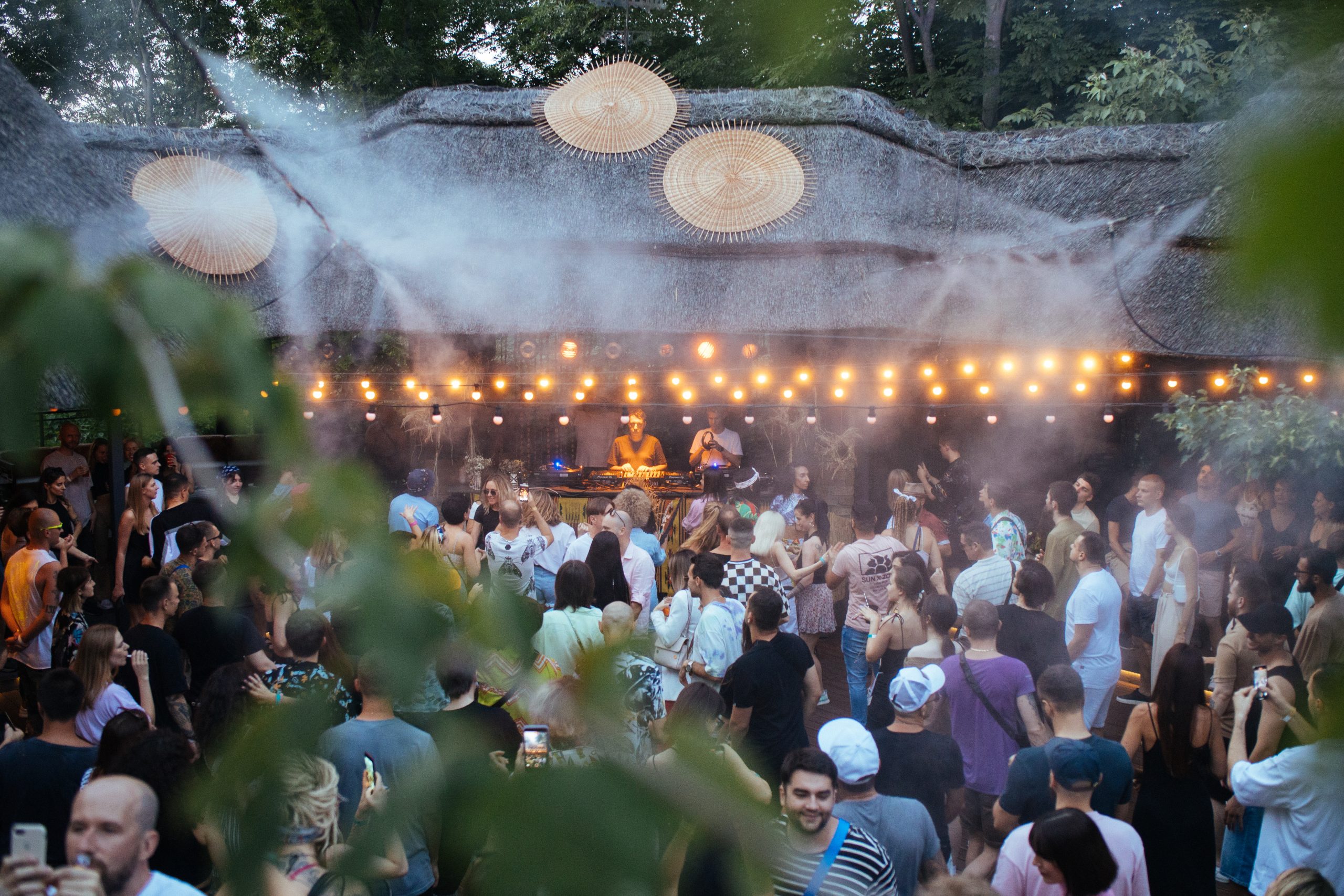
There’s, of course, an elephant in the room in regards to why the loveable trio of Apollonia haven’t had the chance to play together since early 2020. The Covid-19 pandemic has acted as a harsh equaliser across the underground music scene, stopping the rise of up-and-comers, halting the growth of artists who were finding their feet, and stopping the lifestyles of DJs like Shonky, Dan Ghenacia, and Dyed Soundorom, for whom travelling around the world DJing has been the standard for over 15 years.
“We always thought about a break, but we never did it,” Ghenacia concedes, not before Shonky adds, “It was good to be forced, in a way. I was enthusiastic at the beginning. I didn’t expect it to last this long but I was excited in a way as I renewed my studio just before the pandemic so I felt like I’d get to spend a lot of time in there.”
Introspection is a topic that’s been brought up in abundance over the past 18 months, from the wider public too but has been far more deeply concentrated in the arts. This is naturally understandable, as people continued working through a deadly pandemic, or were furloughed in some countries, but a lot of artists either had zero access to state social support initiatives whilst also having a limited way of earning income.
Top DJs and artists can often be put on a pedestal, where everything seems to go their way and they almost seem invincible from the daily and often harsh realities of the DJing lifestyle, let alone the realities of life during a pandemic and living a life in lockdown. The trio all seem in agreement that was there a light through the darkness, with a lot of down time and a lot of time spent on their own, introspective analysis was a natural outcome. “The introspection was the main good thing about this pandemic,” Shonky explains “you start asking yourself questions ‘what are you going to do now?’ ‘when is everything going to restart?’ It was a rollercoaster. I learnt and appreciated how lucky we are to travel all the time and do what we do. It was a routine to play together. When something is there all the time you don’t fully appreciate it.”
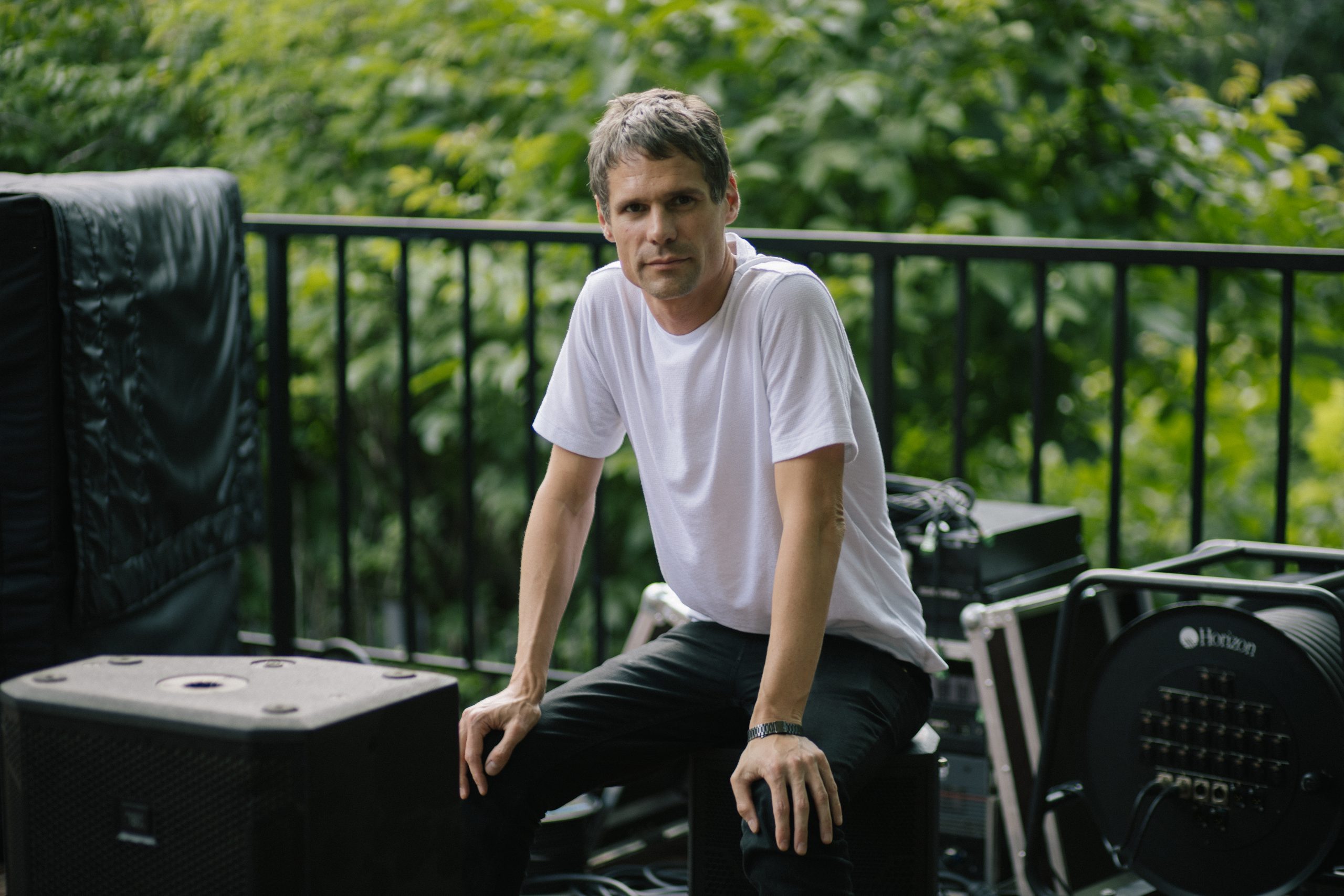
Dan and Dyed are in agreement about Shonky’s assessment about the introspective nature of the past year and a half, and the lives of artists being stopped in their tracks. “We were stuck at home, not playing, not doing anything, but we had time to think about it, this moment of introspection. When you DJ a lot, you don’t realise how fast your life is going, how much you pollute. I saw on TV that dolphins had just come back to the port in Ibiza. Amazing!”
It has been long-known and this is by no means an original idea, but the rat race at dance music’s pinnacle has been a toxic one for artists, promoters, and essentially anyone involved for longer than anyone would like to admit. “You suffer from this whole…” Ghenacia trails off before re-energising himself, “I didn’t realise I was suffering a bit from playing a bit too much. You are playing the most you can, having the highest number of gigs, trying to be the biggest artists. This period opened my eyes a little bit as I thought if I can take just a little bit more time in the future, I will take more holidays and think more about different projects.”
“I had a lot of ups and downs like everyone else, but it helped me focus on what I want and focus on everything.” Dyed chimes in, with a special thanks to meditation, which he credits for calming his anxieties and allowing him to reflect on what a pandemic life looks for like the Lisbon-based selector. “In general, I think I will try to balance everything a bit more on the time. On the road when it’s just gigs after gigs, you lose a bit of the magic, you know?”
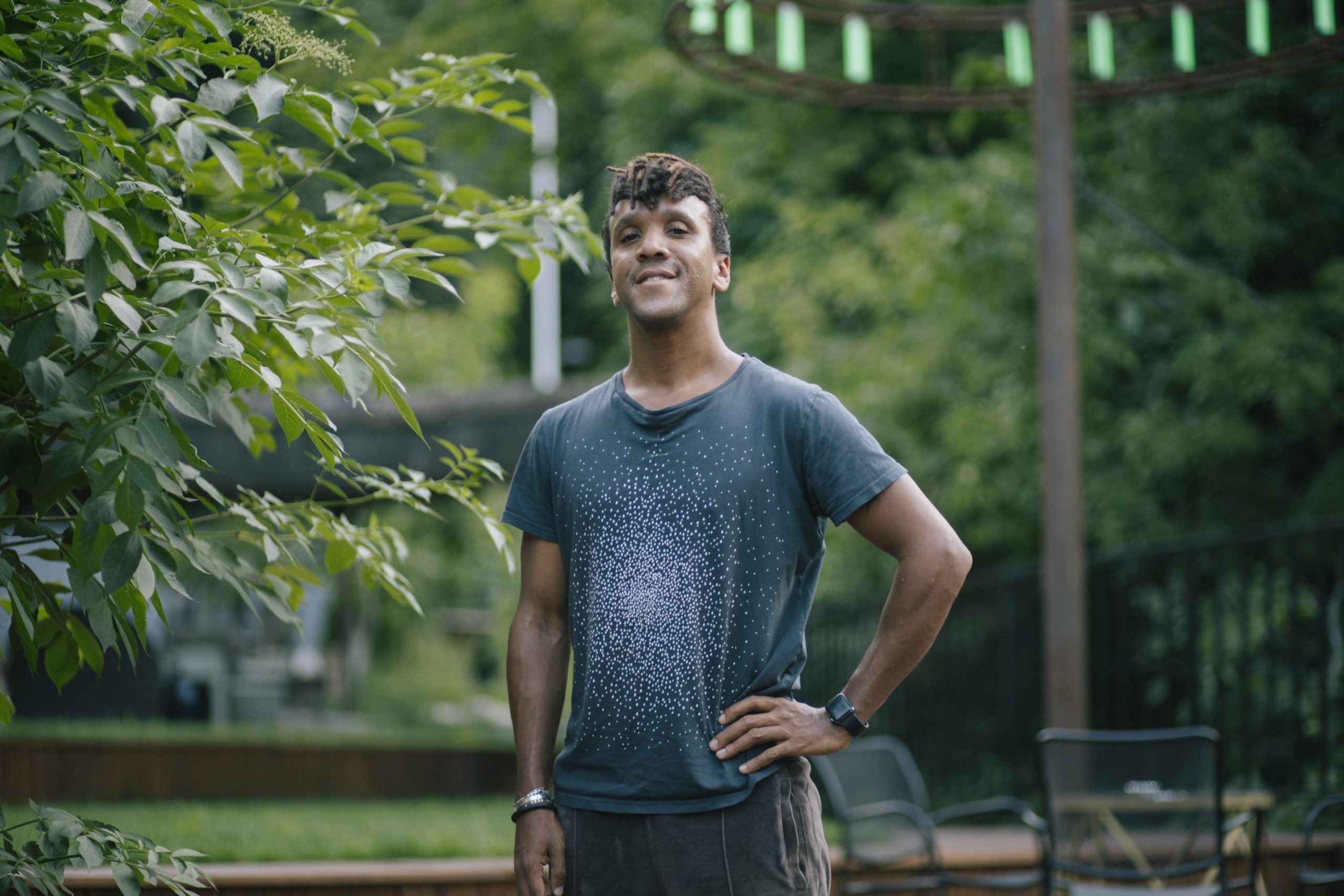
During our conversation there had been obvious talk of excitement but also talk of anxiety and introspection, and after such a long period out, it’s a wonder if that excitement had been tainted by anxiety before going on the decks again. “For me, and for the boys, it’s like a bicycle, you don’t forget it. It was just excitement, a little anxiety as it was a long, long journey and you lose the training of being on the road.” Shonky’s seriousness is counter-acted by a quip and a smile from the Berliner, “The only thing I was scared for was I was used to going to bed early! I didn’t know if I was ready for a long party again.”
For artists such as Apollonia, whose day jobs are being DJs and producers, the need to keep busy and creative became a burning need rather than something just to pass the time. Ghenacia may just take the crown for most ‘unusual’ quarantine project, with his Alpha Wave Experience visual project. With four gigs a week, Ghenacia claims he would’ve gone ‘crazy’ if he didn’t fill his time. “With this project,” he admits “I thought I might be crazy to start it. I thought ‘what if I start it and everything restarts and I can’t finish it?‘”
He recounts that in 2014 whilst searching for visuals for their Apollonia shows, he discovered a concept called a ‘dreamachine’ invented by Brion Gysin at the end of the 1950’s. The dream machine is audiovisual concept, featuring a turntable (utilising the flashing red bulb), and a cylinder with pieces cut out of its sides to project shapes. “I was just searching for terms in Google like: ‘transe, meditation, stroboscope’.” During his research he came across an idea where a machine creates a shapes as it holds onto a rotating turntable. “I made my own, a very basic one, out of cardboard, but I went back on the road and never used it again. In 2020, I moved my studio in Lisbon with Tolga Fidan to an art gallery and the idea was to do some exchanges with different artists and do some design and ambient exhibitions.”
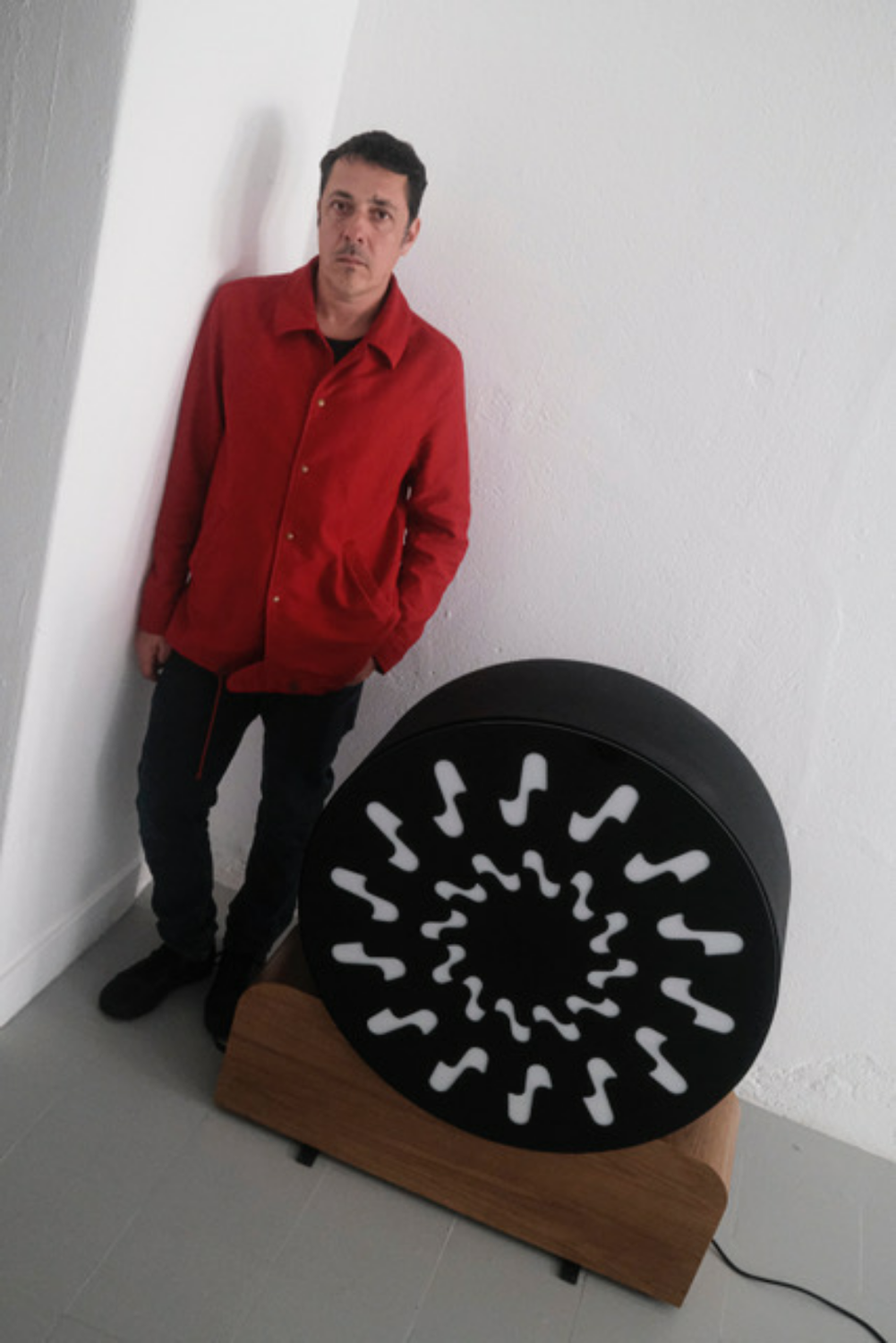
A month later, covid struck, everyone’s assumption that this would quickly pass dwindled away as cases rose and the weeks ticked by. “The owner of the gallery at the start was like ‘Guys, we’re in a really bad situation, they’re going to close the borders, people are buying all the toilet paper! What are we going to do?‘”
A playful mention of the dream machine at the beginning turned into action. “The dream machine gives you some hallucinations and puts you in a meditative state whilst you are sober. You in front of this machine with your eyes closed, you are thinking about the problems of the world…maybe you don’t have an answer yet, but you have time to think about it. We had this big gallery, we sketched and designed some ideas, I met an engineer in Lisbon named Anine Kirsten and asked her to do some 3Ds and how I wanted to do the speed rotation, how to use the motor…”
Ghenacia’s taste for art is something he’s been exposed to all his life with his dad running a gallery in France. “I told him about the re-invention of the dream machine and he said it was a really good idea, the first time he’d heard of something like this from me in 20 years. He told me ‘Always focus on the message’ and this time the message was good.”
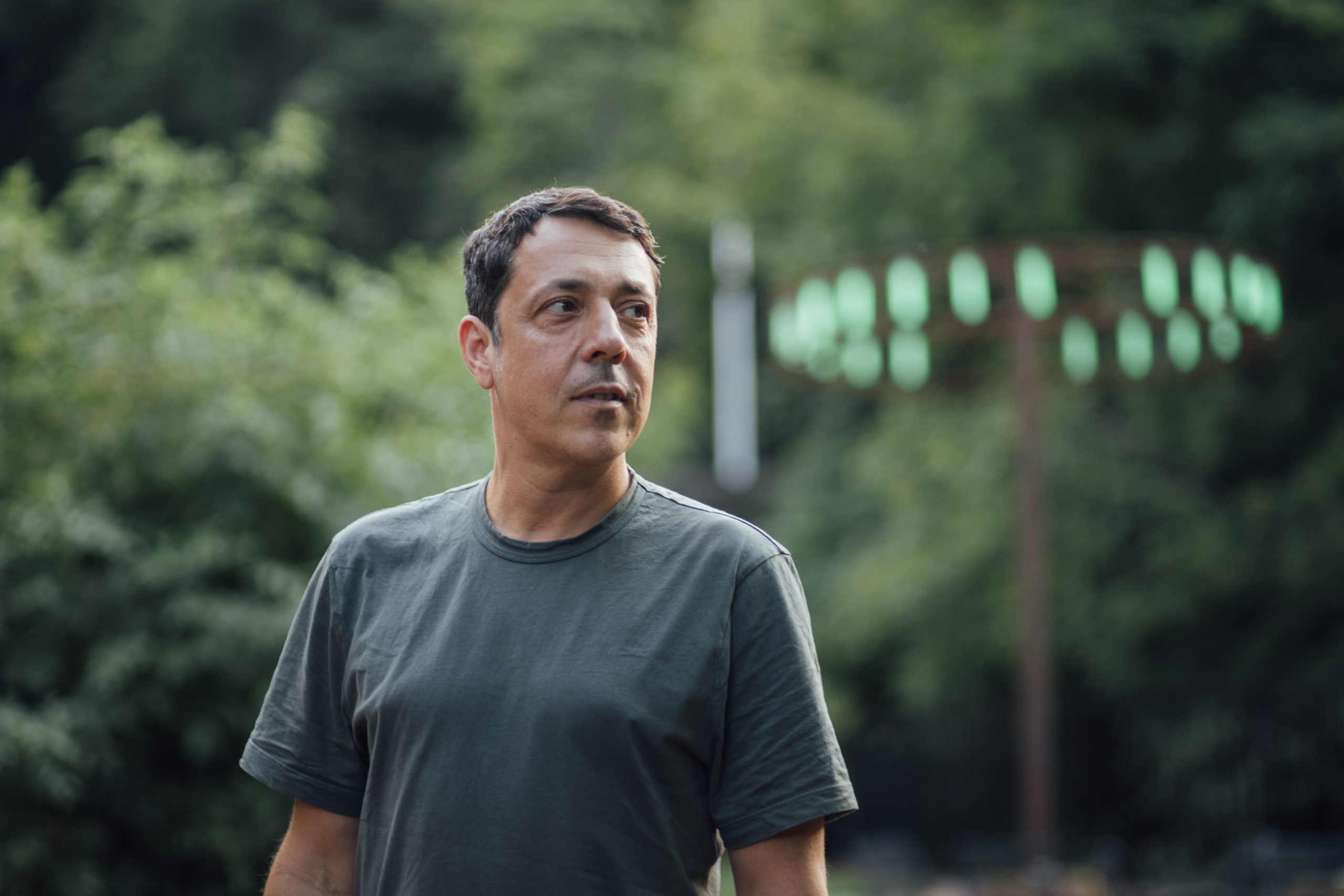
His father ended up introducing him to an artist in Paris who was well versed in the concept of the Alpha Wave Experience and they began working on the project together. A chance meeting in Ibiza with the CEO of Colnaghi gallery in London, “the oldest gallery in the world!” he adds, led to her mentioning she was doing an exhibition with 100 artists about dreams, leading up from the 17th century to Artificial intelligence.
After a creation of a prototype over the course of two weeks back in Lisbon, the Alpha Wave Experience was ready for a trial run. “When we did the prototype it was a really big moment, realising the idea was working well. We did a test on about 20 people, some people saw corals and shapes. Some people had revelations or they see things they haven’t seen before. For example, Dyed saw had a chat with his grandfather!” Dyed interjects with a smile, “I was not talking to him but he was talking to me.”
“Others see people, just some legs, some forests, personally I only see a few corals and a few shapes…I’m a bit jealous! We combine this with music and try to create an artistic approach, some people think it’s meditative.” There’s plans to expand the Alpha Wave Experience further, collaborating with digital artists, creating digital paintings, different visions. “The idea is to bring the artistic collective together, 3D artists, engineers, producers, it’s good to have different ideas.” There’s naturally plans to push the prototype further, and with the London exhibition receiving good feedback as well as one in Lisbon, Boa, Ghenacia’s just finished off a month of exhibitions in Paris for the collective 36 degrés, too.
“I want to say…I’m still into dance music, of course, but this pandemic period allowed me to go in other directions and explores other styles and genres.” He reels off other pandemic creative outlets with a remix album of Reggae songs from a band in Portugal, a venture into breaks with alongside his studio partner Tolga Fidan.
Ghenacia isn’t the only who went in a different musical direction whilst shelled up in his studio. “Don’t get me wrong, I was always close to dance music,” Shonky explains “The only project that was really different was with Julien Quentin, we did a lot of music! The idea was to do something electronic, a bit from like the ‘80s, Miami Vice style!” His collection and love for vintage synthesisers is well-versed at this point, a chance meeting with Julien, who’s a world-travelling pianist led to a collaboration between the two. “He told me ‘I know you have great synths’ and I told him ‘I don’t know how to play them as good as you could do!’ so he came to my studio and within one session it was like ‘okay, nice!”
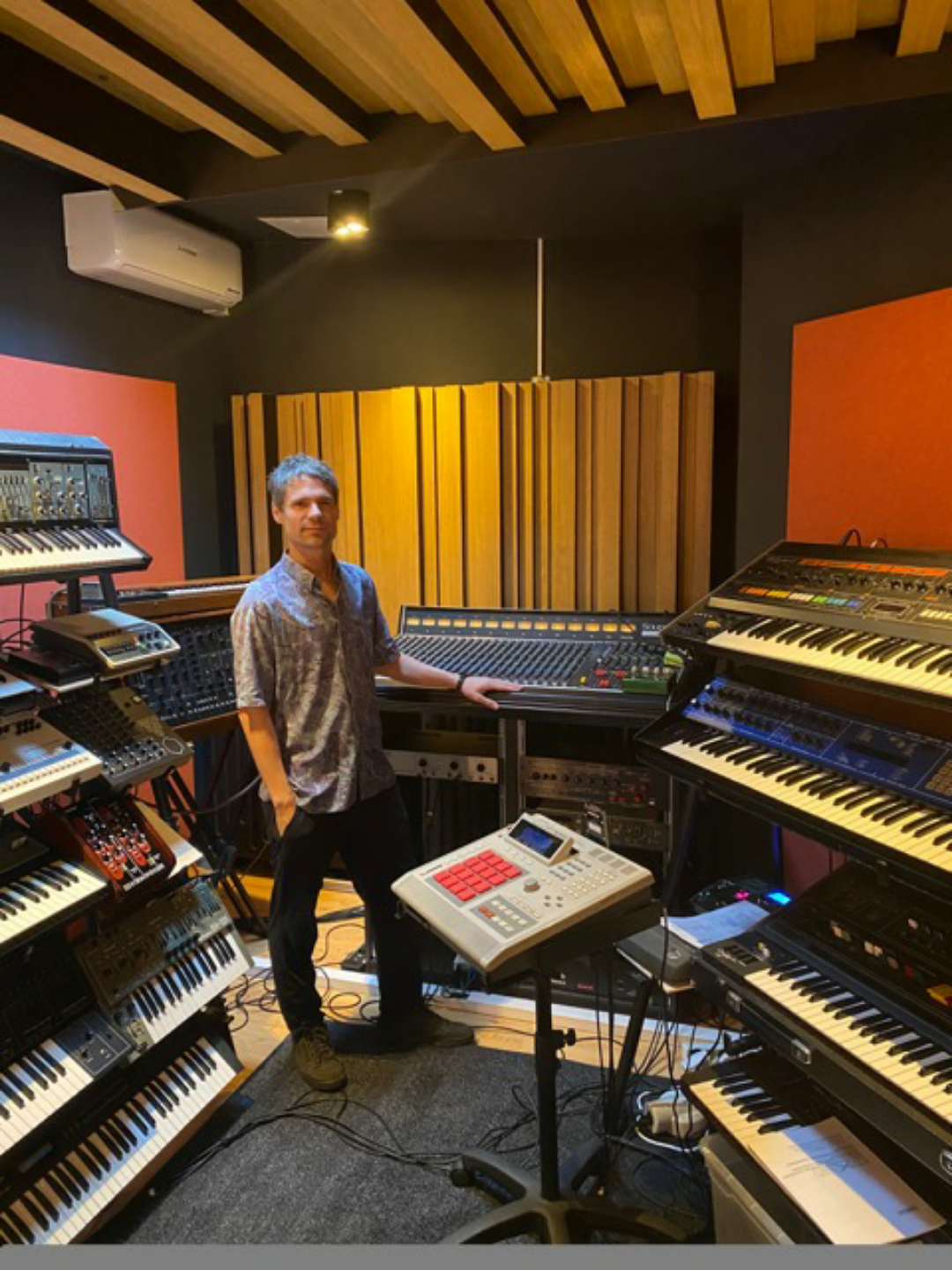
Shonky explains with the tone of someone confessing an unapologetic guilty pleasure, “We wanted to do something with melodies and some love. We were really focused on the melodies and when we were working…” He re-adjusts himself “The music made me smile and made feel happy, perhaps it sounds cheesy and stupid but just imagine, you’re with your partner and you’re looking at the sunset...”
Shonky’s enthusiasm for his side project alongside Julien, as we know already he likes to explore his studio as deep as possible, as well as Dan’s admission of treading down musical paths he’s not best known for could lead to an interesting conclusion. Did the artists lose a bit of love for dancefloor-based music with…well, no dancefloors as a reference point for creating their music for and inspiring them?
“During the pandemic, I’ll be honest, I did lose motivation for the studio a little bit…” Shonky confesses, “I was never far away from dance music during the pandemic when I was producing. But I began to get excited again, excited to get back, to go to a record shop and all this excitement for everything came back so naturally. I’m excited to go back on the road but I’m more hungry to look for music than I was before the pandemic.” For someone who lost motivation in the studio, he still managed to create enough material for a new album coming out on Third Ear Records.
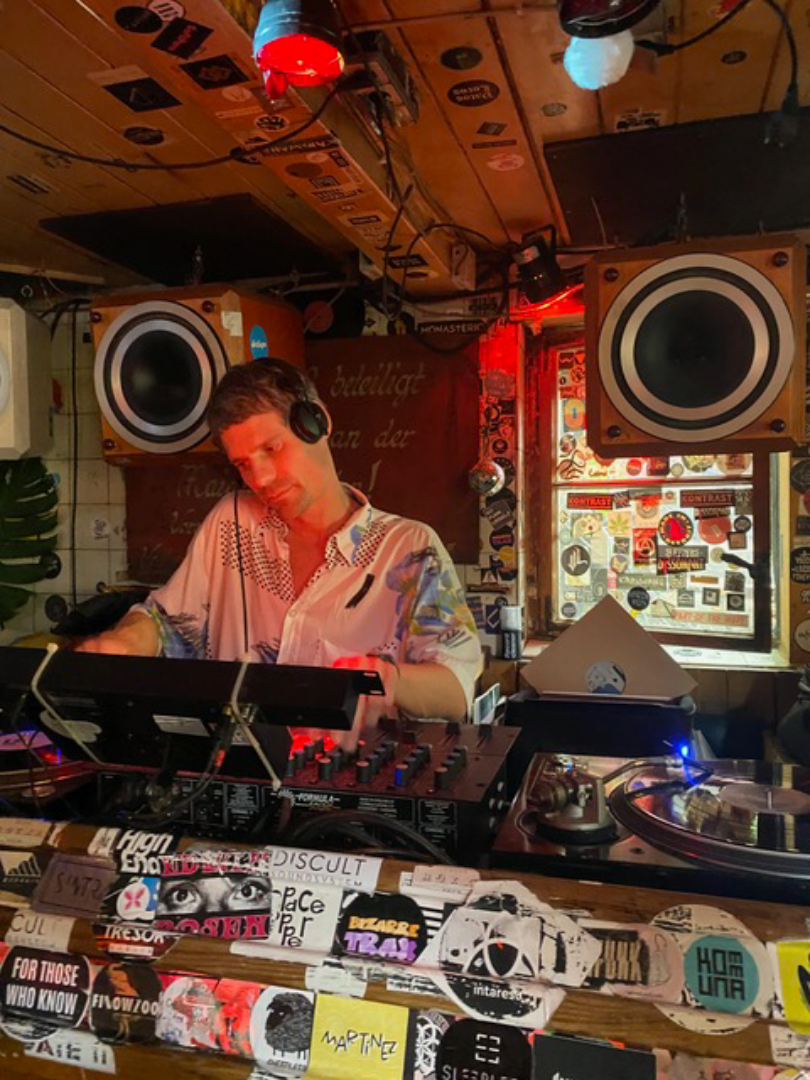
The happiness to restart is evident across all three of the Frenchman, the way they talk about getting back to normal, not just about gigs but even seeing friends and promoters they became used to seeing, going to record shops, travelling to places new and old again, visiting clubs where they’ve laid down underground music history and clubs where they’re yet to.
Shonky smiles when talking about playing Club der Visionaere for Maayan Nidam’s birthday a few weeks back whilst Dan Ghenacia recounts his first official gig after lockdown in Lisbon with Damian Lazarus “It was a beautiful party, everyone was so hungry for the party!”. Dyed highlights returning to UNUM festival in Albania to see the 12,000 people that had increased the 3,000 in 2019, “The whole organisation, the sound system, the energy of the crowd, it was absolutely fantastic.” There was also a US tour from Soundorom, with him extending thanks to Flash (DC), Resolut (NY), Tied (Chicago), Cyclone (L.A), and Un_mute (Miami, “You made me happy!” he exclaims.
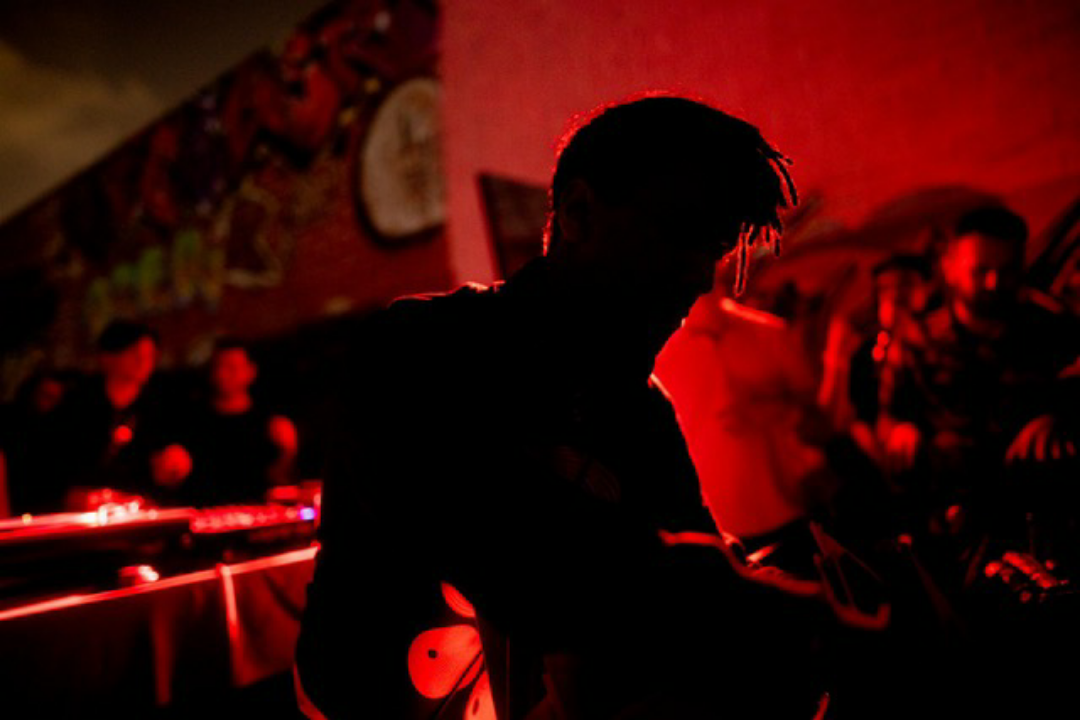
One aspect of the pandemic that became aggressively apparent was record pressing delays. Not least because of the global world’s shipping logistics system becoming overwhelmed thanks to a multitude of factors, but even something as simple as getting a record pressed became overloaded with month long delays. “The whole industry was waiting, thinking ‘is it a good time to release?” adds Ghenacia.
“During the pandemic I think we realised that people wanted something different, you know?” Shonky concedes. It’s only anecdotal, but it’s true. For a lot of people the soundtracks to days spent in their homes became comfort music, perhaps music from their childhood, more relaxed sounds, or even heading in new directions and finding new music and genres to keep busy. Club music can easily be listened to in a non-club environment, but when it’s removed from that context for so long, it can be hard to re-place it in your mind. “I started doing dance music always between 120 and 125 or 128, all my life between those BPMs,” Dan interjects with a jovial “music for the clubs!” with Shonky responding with an even more enthusiastic “Music for the clubs!”
“We have been really into reggae, actually” Ghenacia admits, “Listening to different stuff came really naturally for everyone.” With Shonky adding “every day you are at the same beat, the same groove and one day you say ‘I’m going to do something different!’, you start at 110 or 150. You learn a lot when you start something different and I became more creative trying different things than before.” Whilst Soundorom went back to his roots, “Music wise, I went deep in my roots, which is hip hop, soul, and reggae and i got a lot of inspiration from doing so.”
“We are doing a job where there’s a lot of competition, it’s not easy to be able to make a living off being a DJ. We are very lucky to be able to do this for a long time and the next couple of months are looking busy with gigs.” Shonky switches back to that period of introspection during the pandemic where had no gigs and was living on savings, he looks back and wonders if whether he can take a few less gigs and make a good living. “I mean, before the pandemic, I was like ‘If I don’t have 8 or 10 gigs a month then it’s not good!’ but I realised that if I have 3 or 4 gigs a month, I’m good. I’ve been a DJ since I was 19, I thought if I ever stopped DJing I’d either be dead or I’d be 70 and unable to DJ anymore.”
There is a tone of anxiety within Shonky’s voice before he continues, “I want to be a DJ all my life, you see guys who are in their 50s and they have to reinvent themselves. This period was a reflection ‘Ok, this has all stopped, what are you going to do about it, Shonky?’” A tone switch from anxiety to excitement is met with a recollection of him rediscovering the city of Berlin “I felt like young Shonky entering the city again!” with anecdotes of visiting the German capital’s natural side, some of which he’d never had the chance to visit.
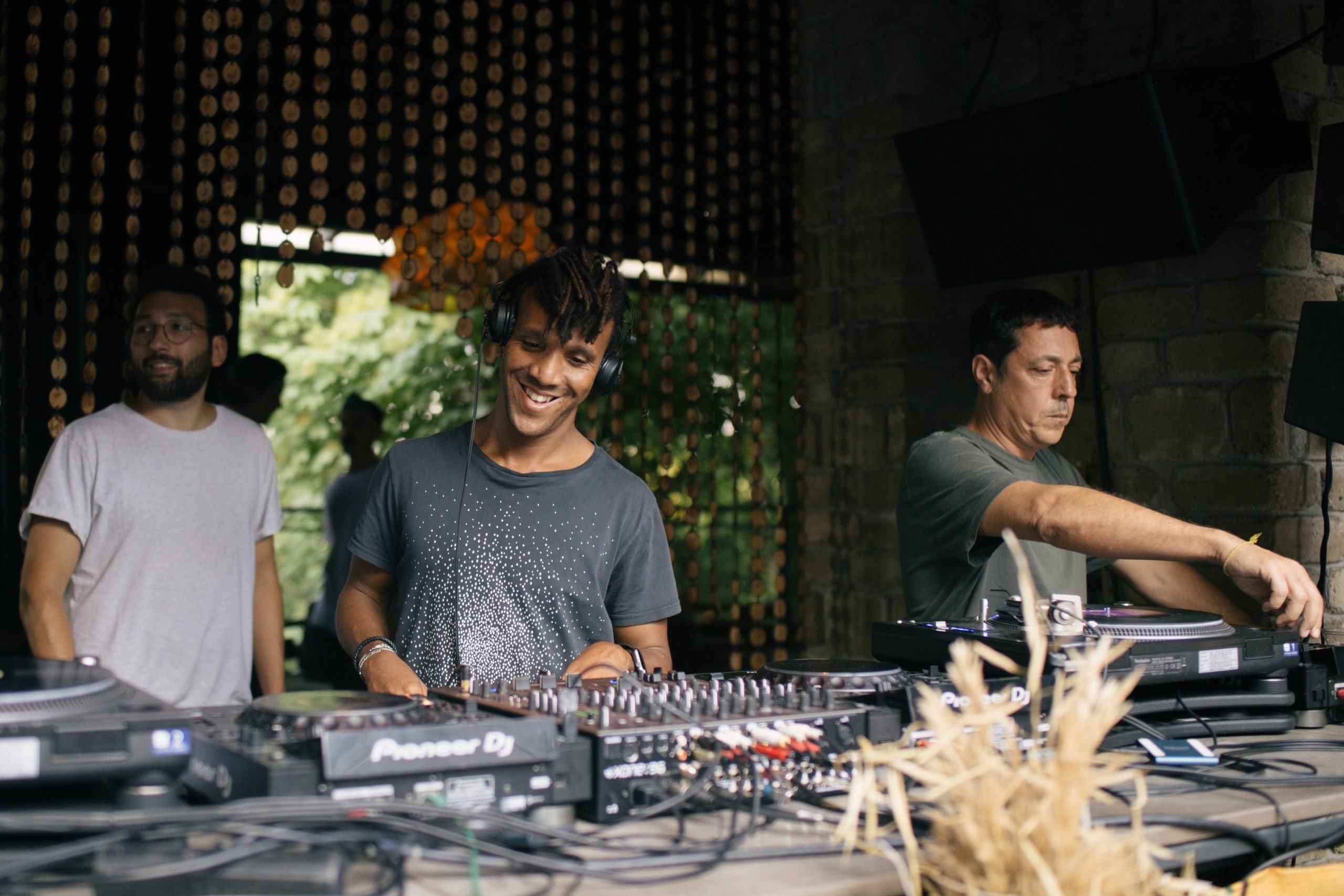
Whilst clubs were shut and screen times went through the roof, there became both a need and a market to re-enact the social value and togetherness that club culture and underground music can bring. Step forward live streams, the early grainy living-room based live streams that began at the end of March slowly conversed into something more professional, The Mudd Show and HOR being the case in point. But for three artists who clearly love to party, partying in video format didn’t cut it for them as a trio.
“As you can see, we didn’t do any live streams” Dan adds. “I was ready to do one, almost, but then I realised the thing I love the most is the connection with the people, in the club.” He goes on “To play every week in my bedroom in front of a camera of my bedroom, for me, personally, I don’t judge, but it doesn’t make sense for me.” Dyed interjects with a jestful “We like to connect!” Shonky laughs in agreement “It’s true! We like to connect, we like the energy, we love to interact.”
Their argument holds up pretty well, not least considering the trio are now in different cities with Dan and Dyed in Lisbon and Shonky in Berlin. Before a change of topic Dyed adds “Some people asked me but I was not interested, they said it’s different, we have visuals, but for me, if there’s no people, it’s not for me…As an artist I cannot, I’m missing the whole…having people in front of me is why I do all of this.”
After our conversation a closing question of ‘what’s next?‘ feels rather redundant. With the trio all talking with almost child-like excitement at the chance to get back to their touring ways, albeit with a little more rest time in between. But for now, the Frenchmen, both individually and as Apollonia, have a lot of magical club moments to catch up on from the past 18 months, with of course some time for pandemic-enlightened creative projects. “In the future I will make time to work on projects, but I am ready to go back on the road. I’m super hungry for it, to have a nice tour, to go back to the airplane two or three days in a row…I need to miss my wife and kids!” admits a grinning Ghenacia followed by Shonky and Soundorom smiles.
More info on Apollonia
Facebook | SoundCloud | Resident Advisor | Discogs | Instagram
More info on Dan Ghenacia
Facebook | SoundCloud | Resident Advisor | Discogs | Instagram
More info on Dyed Soundorom
Facebook | SoundCloud | Resident Advisor | Discogs | Instagram
More info on Shonky
Facebook | SoundCloud | Resident Advisor | Discogs | Instagram



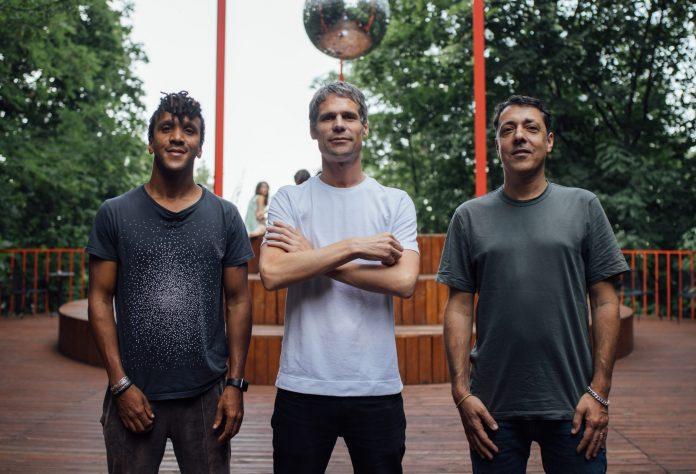
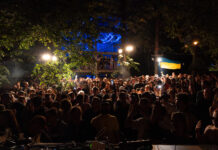

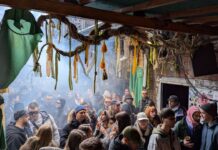
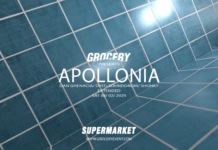
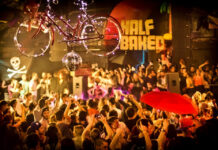

![Premiere: A2 – mrelss – Season of Reason [AMAM044]](https://trommelmusic.com/wp-content/uploads/2026/02/label_side_A-Alessio-Mereu-324x235.jpg)
![Premiere: 2 – Santon – Only a Test (Alain de Saracho Remix) [SDR012]](https://trommelmusic.com/wp-content/uploads/2026/02/Santon-Only-a-Test-EP-Artwork-Alain-de-Saracho-100x70.png)
![Free Download: Zombies in Miami – What Ya Doing [TFD128]](https://trommelmusic.com/wp-content/uploads/2026/02/photo_2026-02-12-10.38.24-e1770892750337-100x70.jpeg)
![Premiere: 1 – DAT (Italy) – Not My Plan [SENS001]](https://trommelmusic.com/wp-content/uploads/2026/02/IMG_9750-Sensazione-Stupenda-100x70.png)
![Premiere: B1 – Kolhida – Break And Escape (Cezar Lazãr Remix) [TTM003]](https://trommelmusic.com/wp-content/uploads/2026/02/IMG_2883-Aleksandr-Gocheleyshvili-100x70.png)
![Premiere: A1 – JJ Fortune – Design [LNS10]](https://trommelmusic.com/wp-content/uploads/2026/02/1188556-100x70.jpg)
![Premiere: A1 – Alexander Skancke – Saga Of Subvision [QRK015]](https://trommelmusic.com/wp-content/uploads/2026/02/photo_2026-02-03_17-31-24-100x70.jpg)

![Premiere: A1 – Light Blue File – JUNIOR [RCR002]](https://trommelmusic.com/wp-content/uploads/2026/02/RCR.002.FRONT_.LABEL-Will-Gilliland-100x70.png)
![Premiere: A2 – Lisovskyi – Just One Good Whiff [FIB004]](https://trommelmusic.com/wp-content/uploads/2026/02/B-100x70.png)